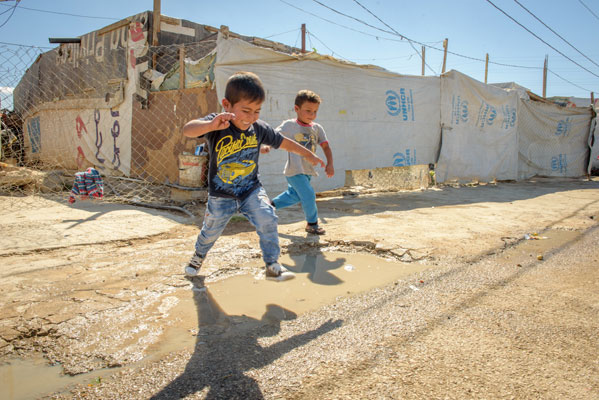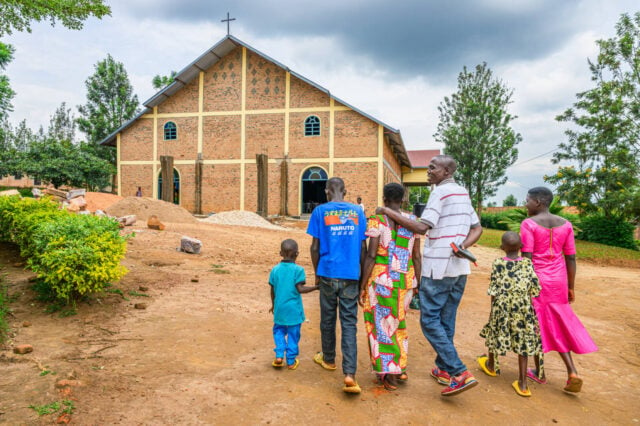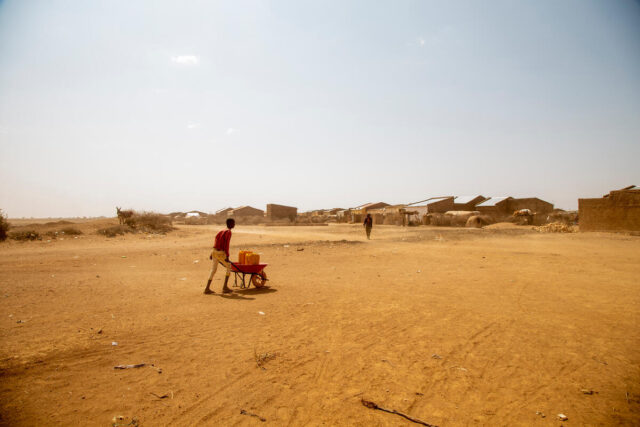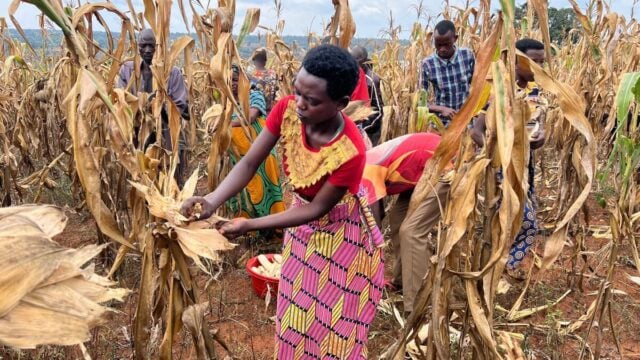World Vision’s award-winning photographers travel around the world every year, capturing moments of God’s grace and faithfulness as we follow Jesus’ example to show unconditional love to the poor and oppressed. They bring back stories that inspire us to action and compassion.
Discover what’s it like behind the scenes during some of these moments, published quarterly in the 2018 issues of World Vision magazine.
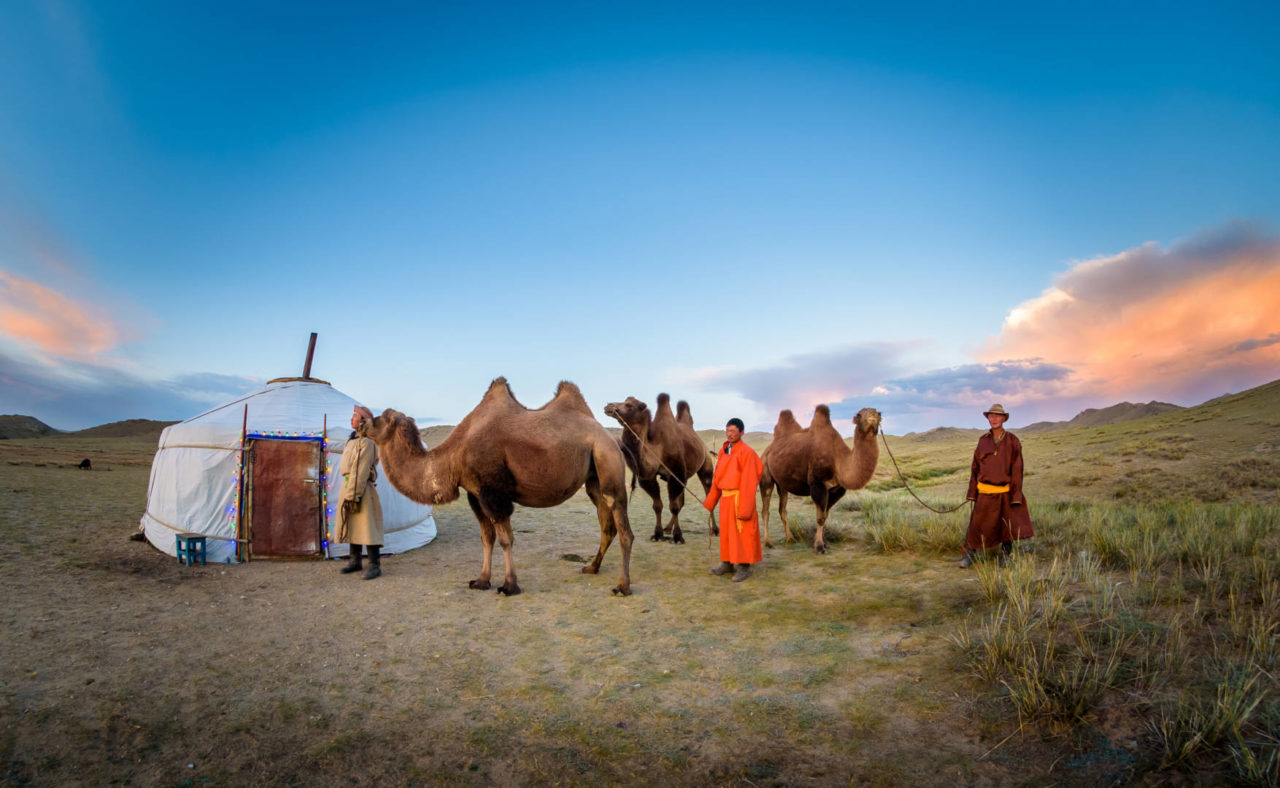
The wise men
Written and photographed by World Vision photographer Jon Warren
Nikon D750 camera
10.5mm lens, 1/60th at f/7.1, 320 ISO
* * *
I love Matthew’s account of the wise men — the Magi — who traveled far, facing peril and making sacrifices, all to bring precious gifts to the newborn King Jesus.
When I saw the majestic Bactrian camels in Mongolia, I knew I had to try to recreate that scene. We were in the Bayankhongor area, on the edge of the Gobi Desert, so I turned to the best possible helpers — World Vision staff, who seem to know everyone in their community.
They introduced me to a local man who had a large herd of camels and who was happy to help us. He warned me, though, that the camels weren’t tame, making it difficult to separate three of them from all the others.
Finally, with the help of camel herders, we lined up three unruly camels next to a ger, or yurt, and hung some battery-operated Christmas lights around the door.
And then their patience with me paid off. The setting sun filled big clouds on the horizon with brilliant color. I switched to a 180-degree fisheye lens to gather it all in.
Some gifts are material, like the animals and gers in the World Vision Gift Catalog. Others are time and hospitality, like the camel herders’ gift to me. But ultimately, every good and perfect gift is from God, and every gift given in love is an act of worship.
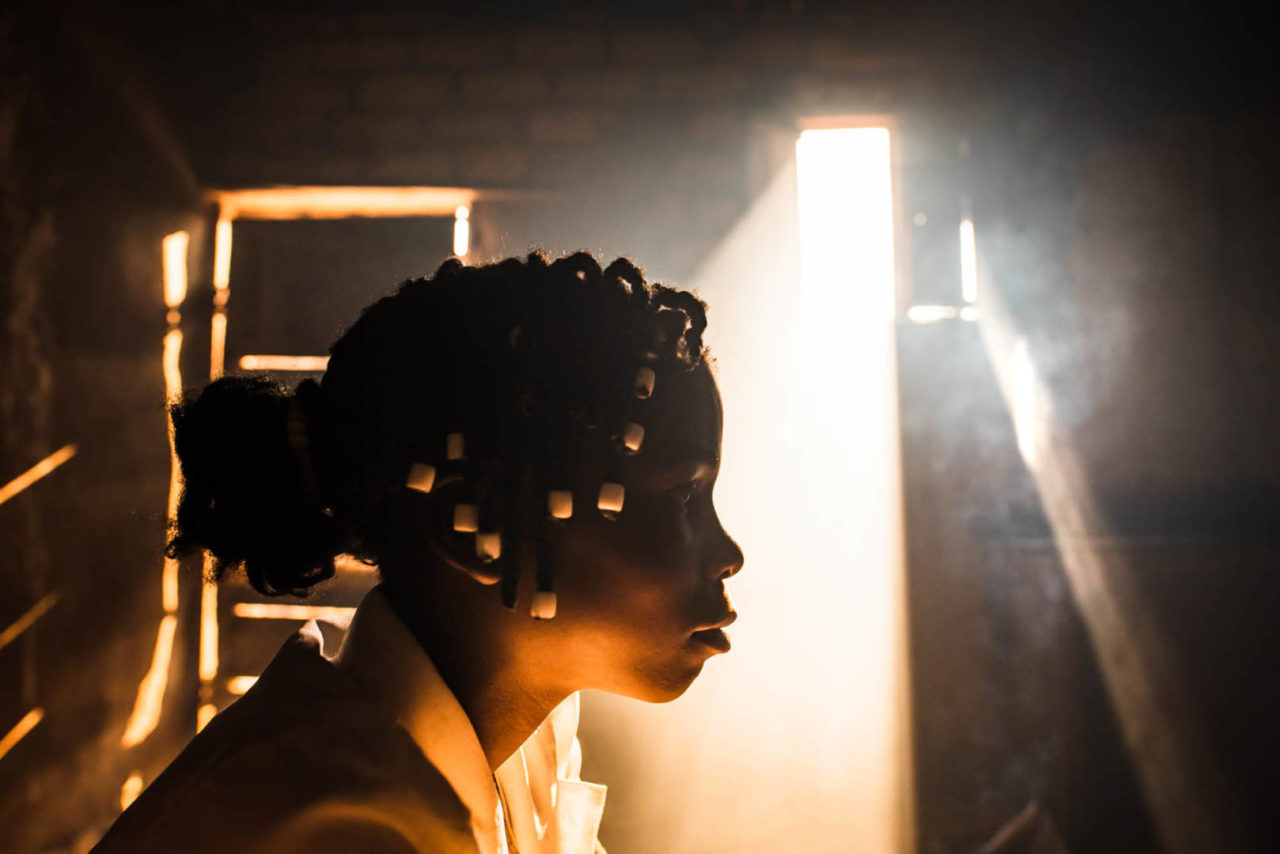
Capturing humanity in a photograph
Written and photographed by World Vision photographer Jon Warren
Nikon D750 camera
28mm lens, 1/200th at f/1.4, 640 ISO
* * *
Scratched in chalk on the wall of 13-year-old Kapinga’s home in the Democratic Republic of the Congo are the words, il n’ya pas de rose sans epines — “there is no rose without thorns.”
Kapinga’s life is full of thorns. Some of her classmates served as child soldiers in the same brutal conflict that killed her father. Her grandmother is struggling to raise her. There isn’t enough food or money for school fees. As many as seven times a day, about a mile from her home, Kapinga joins a long queue to scoop water out of a hole in the sand. She hoes in the garden and helps her grandmother cook. When she finally rests at night, the only thing between her and the hard ground is a plastic sheet and an old mosquito net.
And yet, Kapinga is more than a collection of sorrowful circumstances. In the midst of her struggles, she is starting to bloom. I see this and I want others to see it as well.
Light streams through holes in the tin roof and through cracks in the door, dramatically highlighting Kapinga in profile.
I raise my Nikon D750 camera.
There are a series of mental steps I go through whenever I photograph someone. I listen to their story. I consider the context — especially the light. I watch for memorable moments and emotion.
But my number one rule is that I only photograph people I love.
Kapinga is easy to love. She sings like an angel. She loves her grandmother and misses her father terribly. She is kind to her best friend, Vicky. And her smile. It’s a smile that brims with sadness. The smile of a girl who has seen too much too soon. A smile that comes and goes.
Through the thorns, I see a rose. So I click the shutter.
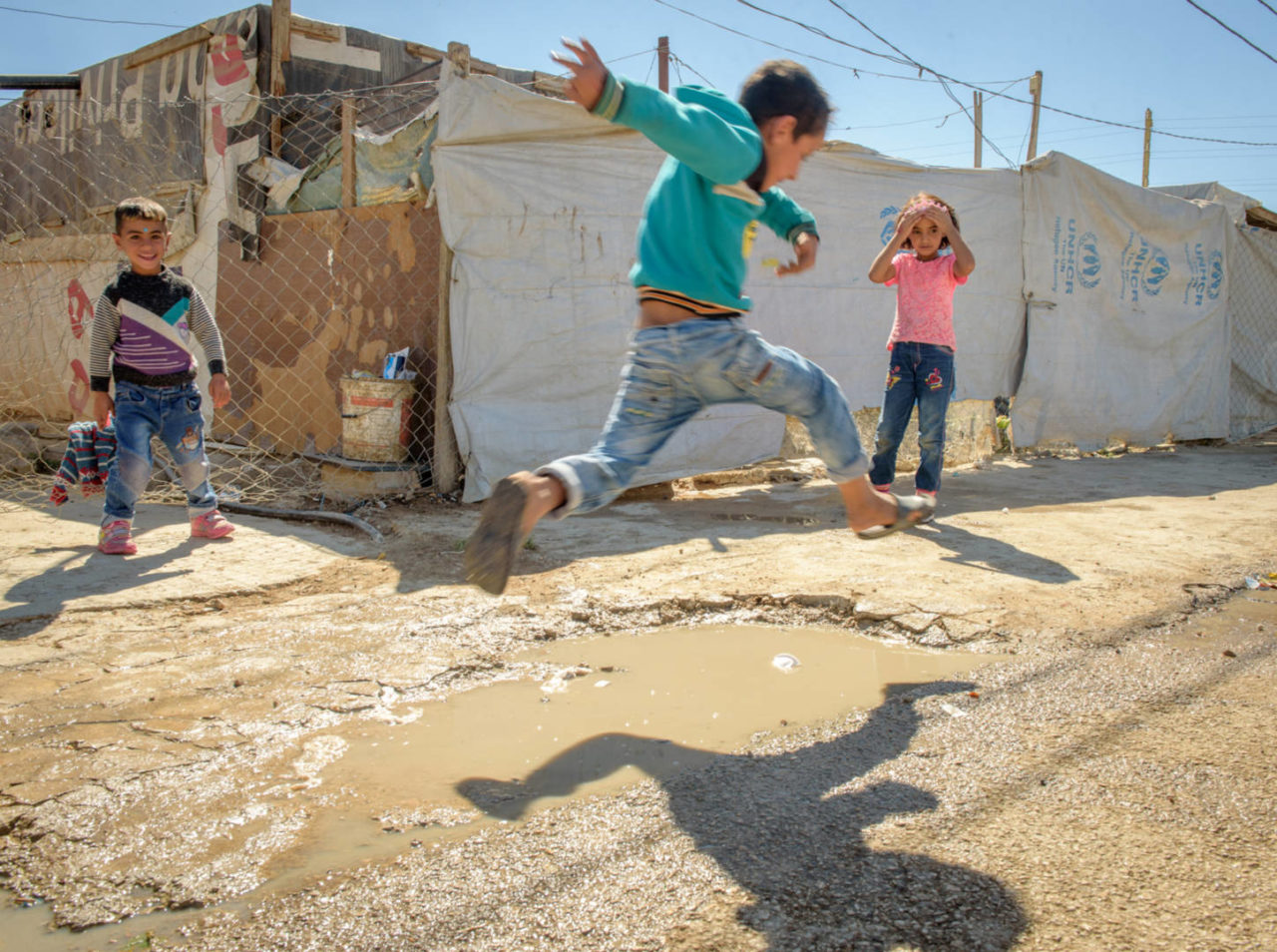
Overcoming obstacles
Written and photographed by World Vision photographer Laura Reinhardt
Nikon D750 camera
31mm lens, 1/200th at f/11, 250 ISO
* * *
As a World Vision photographer, I often photograph people facing some of the most difficult times of their lives.
When I traveled to Lebanon to meet refugees from the Syrian civil war, I knew the people I’d meet would share tough stories — of loss, of hardship, and of sorrow. We strive to represent the reality that people around the world face. This includes their struggles, but we also always want to show people’s dignity and resilience in the face of hardship.
You can see it in their faces, in the set of their mouths, in the spark in their eyes, or through their actions.
World Vision’s work with Syrian refugees in Lebanon’s Bekaa Valley helped show me what that grit and determination look like. While there photographing our water work and early childhood education centers, I had the opportunity to apply a bit of my own determination to find the shot I wanted — people rising above the pain of their circumstances.
After a bus ride from the education center to the informal tent settlement, where some of the students live, I began photographing two boys jumping across a small puddle. They kept at it, so I did too.
My photography mentor, World Vision photographer Jon Warren, has always advised me not to give up on a shot when I feel I’m moving in the right direction. So I kept photographing the boys. Then suddenly, out of nowhere, an older boy came flying through the air.
It was the shot I needed to communicate resilience in dire circumstances. It wasn’t planned, but I was there and hadn’t given up on the situation thanks to Jon’s good advice. That boy’s leap, which cleared the length of the puddle, seemed to say, “This situation won’t contain me. I will rise above it!”
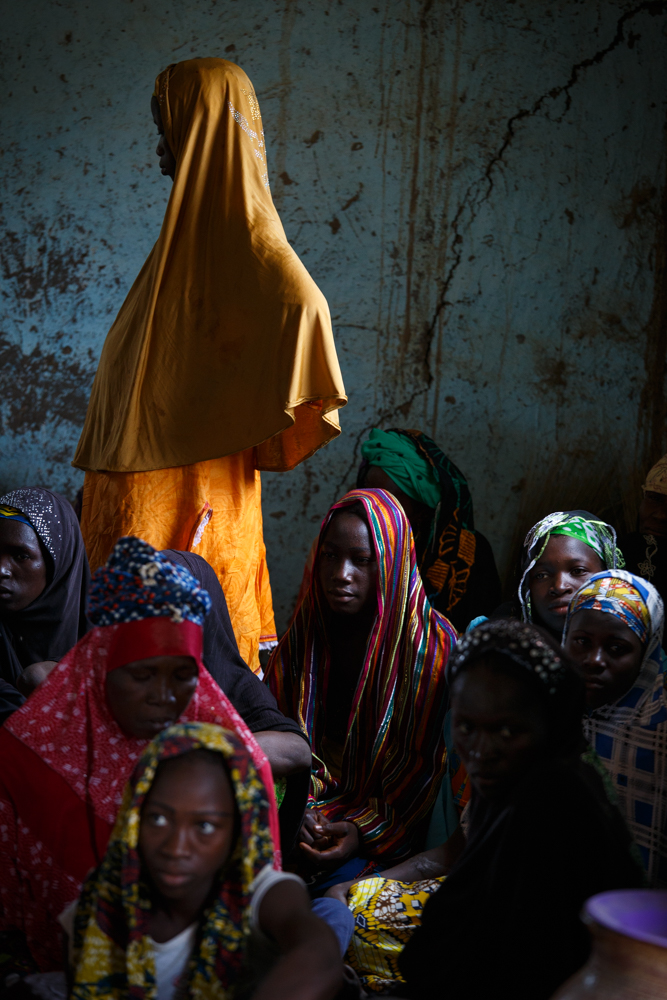
A golden moment
Written and photographed by World Vision photographer Chris Huber
Canon EOS 6D
70-200mm lens, 1/160th at f/5, 1600 ISO
* * *
She stood with purpose and promise. I noticed her rise among the women and children sitting inside the community center in Maraka, Mali. Light from the blazing midday sun shot through the dark room and illuminated her and the hope she carries.
As a World Vision photographer, I have the privilege to capture some of life’s most precious moments. On this day, I not only took this photo but was able to bear witness to our life-changing work to provide access to clean water in Mali.
I know access to clean water changes many people’s lives, especially women and girls since they predominantly bear the burden of collecting water for the household. But water is especially precious here in semi-arid western Mali; I almost passed out twice working long days in the intense heat.
In places with long-held, sometimes harmful habits in certain aspects of life, people’s health suffers because they drink unsafe water and lack toilets and hand washing. As much as 84% of the rural population in Mali does not have access to hand-washing facilities with soap. So our work is vital to women like this soon-to-be mother — a mom whose child will live in a community with access to clean water.
Clean water nearby means less sickness like diarrhea for her family. It means her children can go to school. And it means her family can invest more time in each other because they spend less time collecting water.
But the benefits of bringing access to clean water can’t be fully realized until each community member changes his or her mind about improving personal hygiene and sanitation. This includes incorporating latrines, hand-washing stations, and dish-drying racks at each house. In Maraka, we are working together to make this a reality — to improve life for not only this mother but the entire community.
It was truly a golden moment.
Read more testimonies from World Vision photographers in our Life Frames series.
